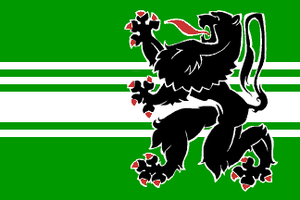What are the problems faced by unaccompanied minors and their foster families in East Flanders and what are the answers put into place?
Most unaccompanied minors who we supervise in foster families in East Flanders reside in kinship foster families. The youngsters live with a family from their own familial or social network. The foster parents themselves are often refugees who have not yet stayed in Belgium for a long period.
In addition to the great commitment and resilience of most youngsters and their foster families, we also see several vulnerabilities. Among these, the experience of uncertainty, such as worries about the future, and loss, for instance of loved ones or protracted separation from their native roots. Furthermore, there are many complaints of (post) traumatic stress and difficulties connected to the fact of raising and growing up between two worlds. On top of it, access to education, the development of future prospects, housing and the process of family reunification complicate the situation even more.
The answers consist in strengthening our attitudes and competences with a cultural-sensitive approach. Pleegzorg East Flanders provides trainings and interventions specifically oriented towards a supervision of foster care situations of unaccompanied minors. We work with employees and external partners who bring in specific expertise. The role of intercultural mediators is extremely important. We make efforts to adapt our way of communication to the target group (translations, paying attention to different holidays and traditions, ...).
In addition, we collaborate with partners who can provide important additional offers such as: trauma-oriented therapy, ethno-psychiatry, general welfare work (family reunification and housing), group sessions targeting the strengthening of capacities and stress regulation, as well as collaborating with guardians. Moreover, opportunities are offered through the organization of a world café, a themed meet and greet (and eat and dance) for Unaccompanied Minor Refugees in foster care and their foster families.
Why do you think the FORM project is meaningful?
The FORM project is really meaningful for us because:
- it develops tools and approaches towards a target group that is missing specific attention and care;
- it supports foster parents of unaccompanied minors who themselves have a migration background (cultural families) in order to strengthen their parenting skills. The cultural background and the new social context for the foster family and the youngster are taken into account.
- it ensures the strengthening of networks within the community with fellow sufferers in Belgium.
In Flanders, foster care has a strong experience in offering therapeutic foster care to foster families. A protocol-based and foster care-specific offer respond to a concrete need in a foster care situation that cannot be offered in the regular fostering cases. In this way, goals are better achieved and breakdowns are avoided as much as possible. However, there is yet no therapeutic foster care approach for the unaccompanied minors in cultural families.
We hope that the FORM project will deliver a module that we can add to the range of our therapeutic approaches within foster care.




